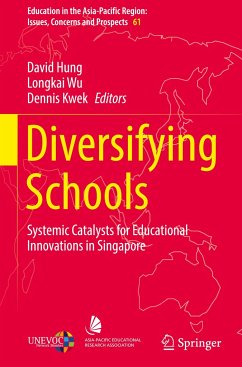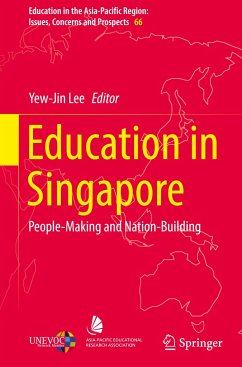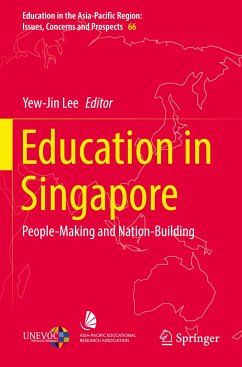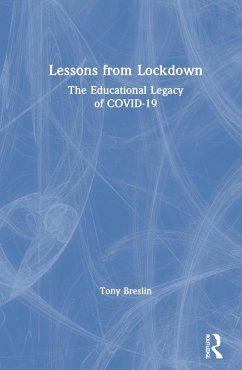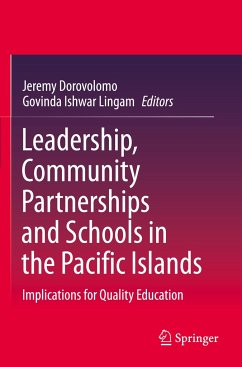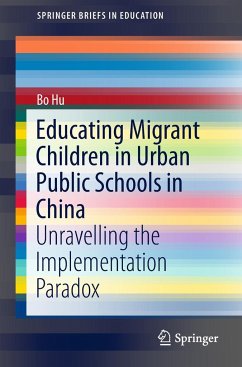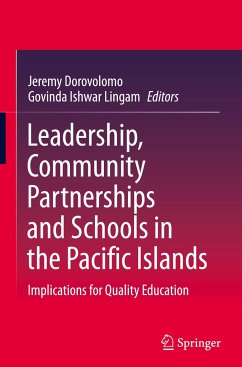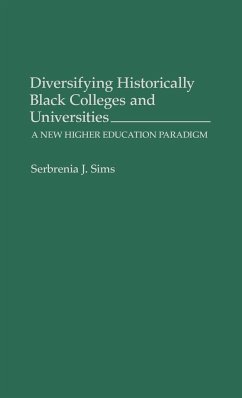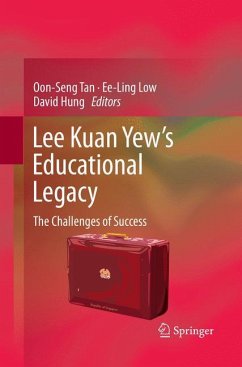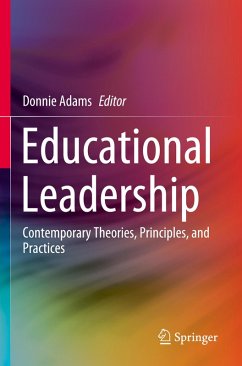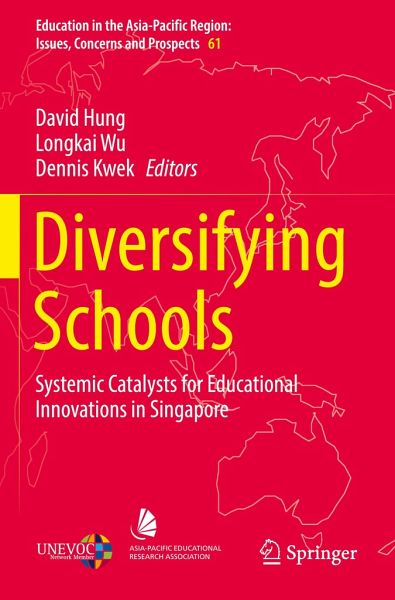
Diversifying Schools
Systemic Catalysts for Educational Innovations in Singapore
Herausgegeben: Hung, David; Wu, Longkai; Kwek, Dennis
Versandkostenfrei!
Versandfertig in 6-10 Tagen
98,99 €
inkl. MwSt.

PAYBACK Punkte
49 °P sammeln!
This book discusses the strategies that the Singapore Education System has embarked to encourage school change and innovations. It documents the change journey of Specialized Schools and Future Schools in Singapore with a view to understand the key tenets that enable school wide change and reform. The intents for change and reform are to anchor the education system to the basic foundations and principles of education and yet enable the system as a whole to be malleable to change and globalization. It shows how Singapore enables diversity within a structured environment through innovations in S...
This book discusses the strategies that the Singapore Education System has embarked to encourage school change and innovations. It documents the change journey of Specialized Schools and Future Schools in Singapore with a view to understand the key tenets that enable school wide change and reform. The intents for change and reform are to anchor the education system to the basic foundations and principles of education and yet enable the system as a whole to be malleable to change and globalization. It shows how Singapore enables diversity within a structured environment through innovations in Specialized and Future Schools, and highlights the systemic rationale behind various efforts in Specialized and Future Schools and the kinds of adaptations schools have made to leverage structures and make adjustments for their contexts.





